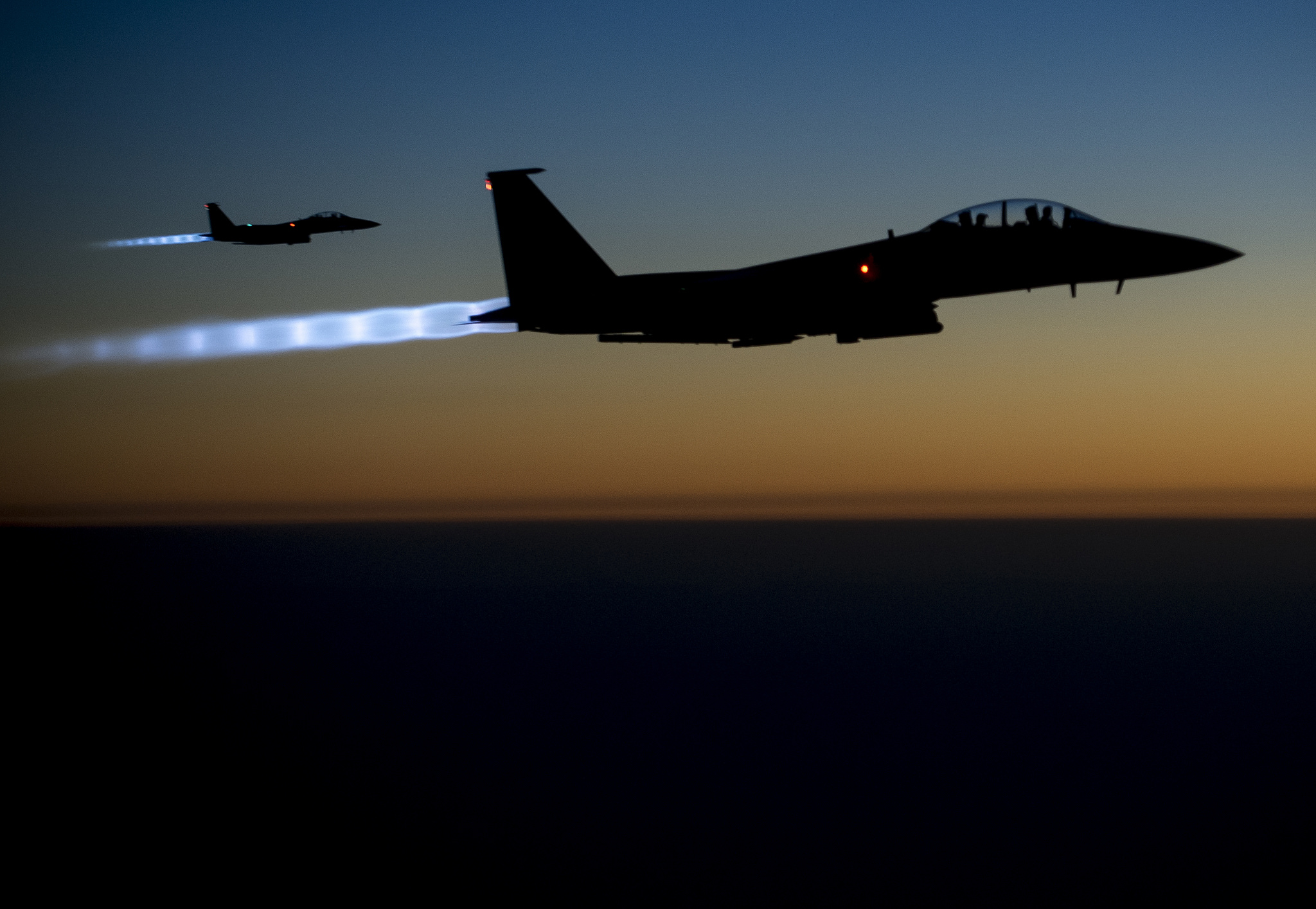Recently, US President Barack Obama issued a formal request to Congress to authorize the use of military force against the Islamic State (ISIS), stirring concern over the possibility of yet another Western ground invasion into the Middle East. With recent terrorist attacks occurring in Canada, Australia, France, and Denmark, heightened fear over Islamic terrorism is giving the West the impetus to escalate its military campaign against ISIS.
Indeed, in a recent poll conducted by NBC News, 54 percent of the American public expressed support of Obama’s proposal, a majority that holds true amongst Democrats, Republicans, and independents alike. On the other hand, a mere 32 percent of respondents urged Congress to reject Obama’s request for authorization. Taken together, these results suggest that the ISIS propaganda machine has been largely effective. The appalling public displays of execution, which have involved gruesome acts of decapitation and immolation, have stoked Western fears to such a degree that another ground assault in the Middle East does not seem out of the question.
While the American public is fairly united in its support of Obama’s resolution, Democrats and Republicans in Congress are less enthusiastic, albeit for opposite reasons. Democrats voiced concern that the authorization would give the President exorbitant power in making military decisions, especially in terms of deploying ground troops. Conversely, Republicans believe that Obama’s request does not give the President sufficient jurisdiction to deal with ISIS. This represents a rare situation in which Obama’s usual adversaries wish to grant him more authority than the members of his own party. While Obama himself maintains that another prolonged ground war in the Middle East is undesirable, he stresses the need for more flexibility with which to respond to the evolving threat posed by ISIS.
Another concern with Obama’s request is that it places no geographic limitations on the use of military force. This means that combat missions could potentially be waged beyond Iraq and Syria, which are currently the main battlegrounds in the fight against ISIS. While the atrocities committed by ISIS are not limited to these countries, as illustrated by the recent beheadings of Egyptian Christians in Libya, there is skepticism over whether a Western campaign in areas outside of Iraq and Syria would be effective. After military interventions in states such as Afghanistan, Libya, and Iraq, where the West failed to establish peace and stability, fear over a geographically-unlimited mission against ISIS is warranted.
The debate to expand the West’s role in the Middle East is also beginning to unfold here in Canada, which has already joined the international coalition against ISIS. While Canada’s current responsibility is to provide air and logistical support to Western allies, many believe that Canadian forces are engaged in a more combative role. In addition to orchestrating 14 airstrikes as part of their official duties, Canadian troops also exchanged ground fire with ISIS forces. According to Captain Paul Forget, these exchanges occurred while Canadian forces were providing assistance Iraqi troops on the frontlines, and were not part of an aggressive assault.
The Canadian Parliament is currently debating an extension of its mission against ISIS, which would expire on March 31, 2016 if approved. Arguing in favour of the extension, Prime Minister Stephen Harper has also called for an authorization of airstrikes in Syria, a measure which NDP Leader Tom Mulcair claims would raise legal questions. Moreover, Liberals and New Democrats alike have expressed concern over the nature of Canada’s involvement, arguing that the government should prioritize diplomatic and humanitarian responses to the crisis over combative ones.
The Canadian public is enthusiastic about the Western campaign against ISIS. In a recent Ipsos Reid poll, 76% of Canadians expressed support for the “use of Canadian Forces fighter jets in the international coalition’s airstrikes against ISIS targets in Iraq.” This constitutes a 12-point increase in support since a similar poll that was undertaken last September, shortly before Canada joined the coalition. This further suggests that the scare tactics employed by ISIS, as well as the recent terrorist attacks that have devastated several nations across the globe, have succeeded in exacerbating fear amongst the Western public. Moreover, 83% of the poll’s respondents believe that Canada is engaged in a combat campaign against ISIS, contrary to earlier claims made by the federal government.
Perhaps the most surprising outcome of the poll is that 70% of Canadians have indicated support for ground forces in the war against ISIS. Despite this widespread enthusiasm, many analysts have submitted compelling arguments against a ground incursion into the Middle East. A recent piece by Graeme Wood of The Atlantic stresses that military escalation against ISIS would involve excessive risk. An invasion would further impel jihadists around the globe to join in the fight against the West, and would fuel resentment amongst the large numbers of Muslims worldwide who fear Western encroachment into their territory. Coupled with the fact that Western interventions have produced power vacuums across the Middle East, allowing groups like ISIS to thrive, citizens of the West should temper their eagerness for ground combat operations.
If Obama and Harper are successful in their pursuit of military authorization against ISIS, there is potential for the West to become embroiled in a more aggressive military escapade in the Middle East. If the international community considers its past mistakes, this should be a cause for alarm.




